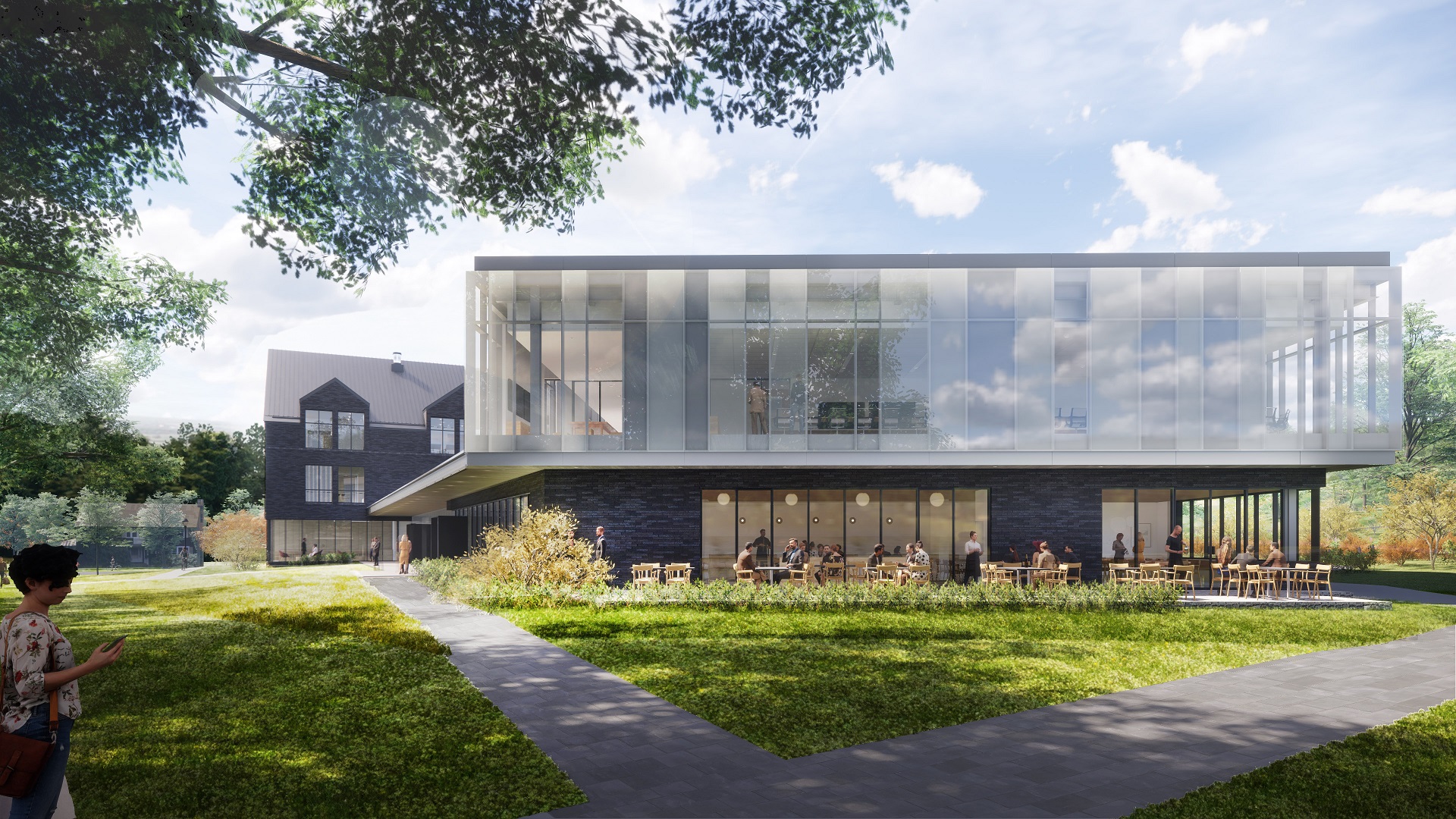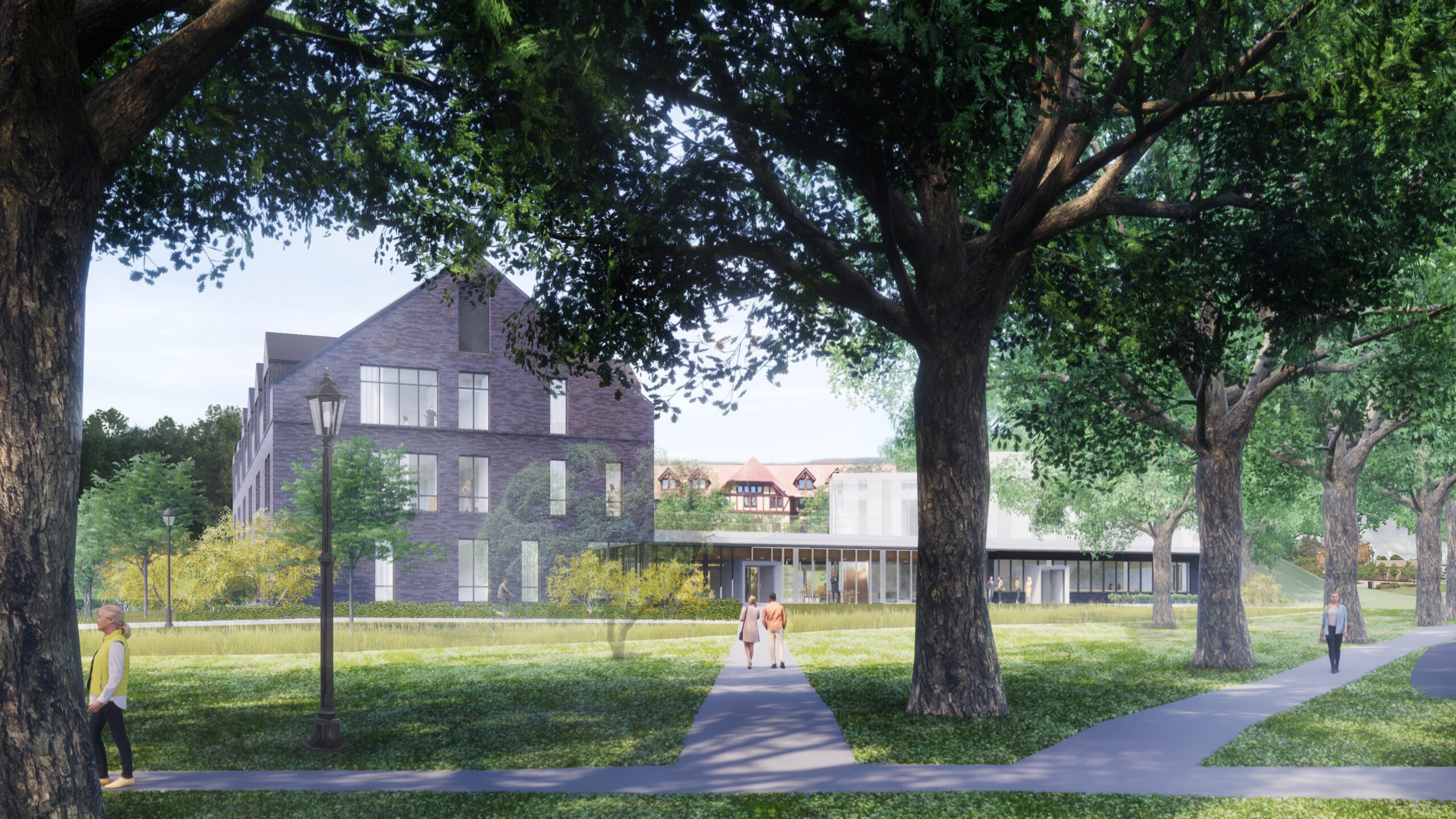Olympia Hotel Management has announced that it has been selected to develop and operate a new hotel called The Crossroads Inn and its restaurant, The Salt Line, located on the campus of Vassar College in Poughkeepsie, New York.
The Crossroads Inn and The Salt Line are part of a new conference complex called The Vassar Institute for the Liberal Arts. The Vassar Institute will convene scholars and thought leaders from Vassar, the local area, and around the globe. Reflecting the Vassar ethos of “going to the source,” the Institute will create a space for meaningful dialogue and lively debate. It will be an incubator for scholarly discoveries limited only by the imagination.

The Vassar Institute is designed to provide indoor-outdoor connections with natural light, campus views, and the surrounding park-like landscape. The design calls for a three-story gable roof Inn, a two-story Institute with The Salt Line restaurant below, and a glass lobby that will act as a public living room.
The project, situated on the south side of the Alumnae House lawn at the campus gateway, broke ground on October 1, 2022, and is anticipated to open in 2024. Frederick Fisher & Partners are the architects.
Olympia was chosen to operate because of its long experience with a diverse collection of unique campus hotel projects, including The Alfond Inn at Rollins, The Hotel at Oberlin, The Inn at Swarthmore, and Kent State University Hotel & Conference Center.
“Olympia has been an important advisor for Vassar as we considered and developed the Vassar Institute and Inn,” said Bryan Swarthout, Vice President for Finance and Administration at Vassar College. “Their knowledge of the college campus environment, excellent track record in hospitality, and entrepreneurial spirit made them the natural choice to operate this new endeavor for the College.”
The Crossroads Inn will include 50 guest rooms, a fitness facility, and two “Snugs,” serving as a shared living room for guests. The interior design of the 48,000-square-foot Inn is inspired by the Hudson River Valley, Poughkeepsie, and the Vassar College campus. The Inn is designed for guests that will include visiting academics, families of Vassar students, alumni, and weekend travelers to the scenic Hudson River Valley.

The lobby features an interactive art installation by American conceptual artist Mark Dion, celebrating the breadth and depth of the educational experiences available at Vassar College.
The Salt Line restaurant will sit adjacent to the Inn’s lobby and provide upscale, farm-to-table American fare. The space will include a 60-seat restaurant, the 24-seat Night Owls bar, a 14-seat private dining room, and a 36-seat patio. The name “Salt Line” refers to the northern salt line of the nearby Hudson River, where brackish water meets fresh water. Like waters meeting, the restaurant is themed as a place where perspectives will cross, and cultures will meet in the congenial atmosphere of a shared dining experience. Both the Inn and restaurant will provide daily access and amenities to the area.
“We feel honored to have been chosen by Vassar to operate The Crossroads Inn and The Salt Line,” said Sara Masterson, President, of Olympia Hotel Management. “We’ll call on our deep experience and successful track record with unique campus hospitality projects to hit all the right notes for this singular and very special opportunity. We have tremendous appreciation for Vassar’s vision to create a setting that fosters thought leadership coupled with campus and community engagement.”
The Inn and the Institute are surrounded by acres of landscaped green space, and there will be a connecting pathway to the Vassar College Alumnae House. The green space includes an event lawn for outdoor gatherings and the Arlington Farmer’s Market.
Vassar is deeply committed to sustainability and green building practices. The building will be highly sustainable, with heating and cooling provided by a geothermal system that connects to highly efficient water source heat pumps. The all-electric kitchen will use no natural gas. The project is planned to achieve Carbon Neutrality through the building’s high energy efficiency, daylight-infused spaces, and use of natural materials.
